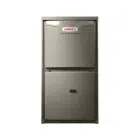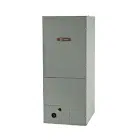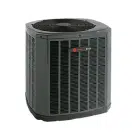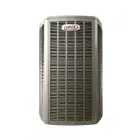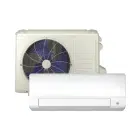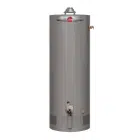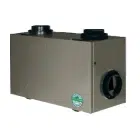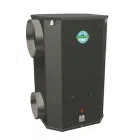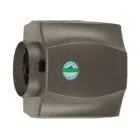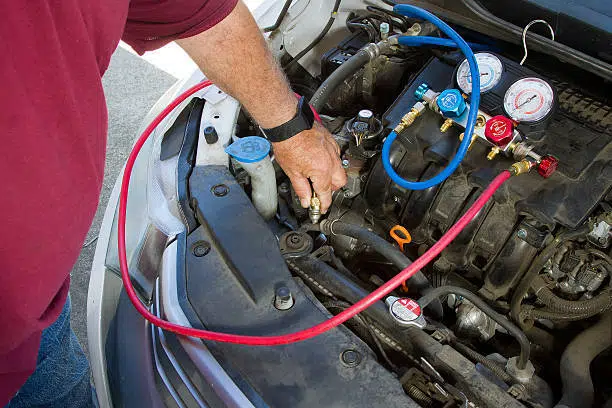
Table of Contents
A well-functioning air conditioner (AC) is essential for maintaining a comfortable and healthy indoor environment, especially during the hot summer months. However, one common issue many homeowners face is unpleasant smells emanating from their AC units. These odors can range from musty and stale to downright foul and offensive. Understanding the cause of these smells is crucial for resolving the problem and ensuring your AC operates efficiently. This guide aims to help you identify the sources of these odors and provide practical solutions to address them.
Common Causes of Air Conditioner Smells
When you notice air conditioner smells, it’s essential to identify the source to address the issue effectively. Here are the most common causes:
Mold and Mildew
One of the most common reasons for an air conditioner to emit a musty or earthy smell is the presence of mold or mildew. Air conditioners are prone to moisture buildup, which can create an ideal environment for mold and mildew to grow, particularly in areas like the evaporator coils, condensate drain pan, and air ducts.
Signs: If you notice a musty or earthy smell when your AC is running, it’s a strong indicator that mold or mildew is present in the system.
Solution: Regular cleaning and maintenance of the AC unit are essential to prevent mold and mildew growth. This includes cleaning the evaporator coils, ensuring the condensate drain is not clogged, and using a dehumidifier to reduce moisture levels in the home.
Regular inspections and cleanings can prevent mold from taking hold in your AC system, keeping your home smelling fresh and your air conditioner operating efficiently.
Dirty or Clogged Filters
Dust, dirt, and debris can accumulate on the air conditioner filters over time, leading to a stale or dusty smell. When the filter is clogged, it can’t effectively trap particles, which then circulate through your home.
Signs: A stale or dusty smell is a clear sign that your air conditioner filters may be dirty or clogged.
Solution: Replace or clean the air conditioner filters regularly, ideally every 1-3 months, depending on usage and the manufacturer’s recommendations. This not only helps with odor control but also improves the efficiency of your AC unit.
Maintaining clean air conditioner filters is a simple yet effective way to prevent bad smells and ensure optimal performance of your AC system.
Dead Animals or Insects
Small animals or insects can sometimes find their way into the air conditioning system and, unfortunately, die there. The decomposition process produces a foul, rotten smell that is hard to ignore.
Signs: A strong, foul, or rotten smell indicates the possibility of a dead animal or insect within the system.
Solution: If you suspect this is the cause, it’s best to turn off the AC and contact a professional to inspect and remove the remains safely. Regular inspection and sealing of entry points can help prevent this issue.
Addressing the issue of dead animals or insects promptly ensures that your AC system remains odor-free and your home stays comfortable.
Refrigerant Leaks
Refrigerant leaks are less common but can produce a sweet, chemical smell. Refrigerant is crucial for the cooling process, and leaks not only cause odors but also reduce the efficiency of the AC unit.
Signs: A sweet or chloroform-like smell is a telltale sign of a refrigerant leak.
Solution: If you detect this odor, it’s essential to call a professional immediately. Handling refrigerants requires specialized knowledge and equipment. Professionals can locate and repair the leak and recharge the system with the appropriate amount of refrigerant.
Quickly addressing refrigerant leaks can prevent further damage to your AC unit and eliminate the sweet, chemical smell.
Find out what to do if your air conditioner is leaking water in our detailed repair guide.
https://thehvacservice.ca/how-to-resolve-an-air-conditioner-leaking-water-inside/
Electrical Issues
Explanation: Electrical problems, such as faulty wiring or overheating components, can produce a burning or smoky odor. These issues are serious and can pose a fire hazard.
Signs: A burning or smoky smell is a clear indicator of an electrical problem.
Solution: Turn off the AC unit immediately and contact a professional. Do not attempt to fix electrical issues on your own, as they can be dangerous.
Ensuring your AC’s electrical components are in good condition can prevent bad smells and ensure the safety of your home.
For a professional air conditioner in Canada, don’t hesitate to contact HVAC Service Solutions service. You can reach out to us via the link below.
https://thehvacservice.ca/repair-air-conditioners/
Preventative Measures
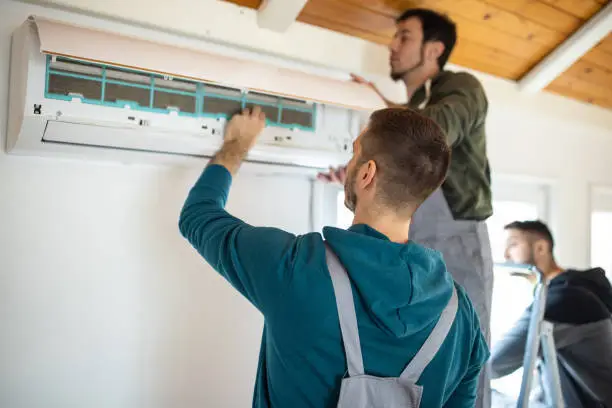
Preventing unpleasant odors from your air conditioner is possible with regular maintenance and a few simple practices. By taking these steps, you can avoid bad smells and keep your AC running smoothly.
Regular Maintenance
Regular air conditioner maintenance is key to preventing many issues that cause air conditioner smells. It helps in early detection of problems and ensures the efficient operation of your AC unit.
Scheduling routine maintenance with HVAC professionals is crucial for the early detection of potential problems and ensuring the efficient operation of your AC unit.
Regular maintenance helps prevent mold growth, clogs, and other issues that can lead to bad smells. It also ensures that all components are working correctly, extending the lifespan of your system.
With consistent professional maintenance, you can avoid many of the issues that lead to unpleasant smells, keeping your home fresh and comfortable.
Keeping the Unit Clean
Regular cleaning of your air conditioner unit can prevent the buildup of dirt and debris that often cause bad smells.
Regularly clean the AC unit, including the evaporator coils, condenser coils, and air ducts.
Cleaning these components reduces the chances of mold growth and clogs, which are common causes of odors. It also helps the unit run more efficiently, saving energy and money.
Keeping your AC unit clean not only prevents bad smells but also ensures better air quality and efficiency.
Timely Filter Changes
Air conditioner filters play a crucial role in maintaining air quality and preventing bad smells.
Change or clean filters every 1-3 months, depending on usage and the manufacturer’s recommendations.
Clean filters ensure proper airflow and help trap dust, dirt, and other particles, preventing them from circulating in your home and causing odors.
Maintaining clean air conditioner filters is essential for preventing bad smells and ensuring your AC runs efficiently.
Proper Ventilation
Proper ventilation in your home can significantly reduce the likelihood of moisture buildup, which often leads to bad smells from your air conditioner.
Ensure good ventilation in your home to prevent moisture buildup, which can lead to mold and mildew.
Use dehumidifiers in high humidity areas, keep windows open when possible to allow fresh air in, and ensure that exhaust fans in bathrooms and kitchens are working correctly.
Good ventilation practices can help maintain a fresh-smelling home and prevent mold and mildew growth in your AC system.
When to Call a Professional
While regular maintenance and proper care can prevent many issues, there are times when professional help is necessary. Knowing when to call in the experts can save you time and hassle.
Some issues causing air conditioner smells require the expertise of a professional. Recognizing these situations is important for timely and effective resolution.
Indicators:
- Persistent or severe smells that don’t go away after cleaning and maintenance.
- Unexplained odors that you cannot identify or resolve on your own.
- Performance issues with the AC unit, such as reduced cooling efficiency or unusual noises.
Professional inspection and repair ensure safety and effectiveness. HVAC technicians have the expertise and tools to diagnose and fix issues that homeowners might miss or be unable to handle.
For expert assistance, reach out to HVAC Service Solutions. Our team of professionals is ready to help you with all your air conditioning needs, ensuring your home remains comfortable and odor-free.
Knowing when to call a professional can make a significant difference in resolving air conditioner smells quickly and efficiently.
Conclusion
Unpleasant smells from your air conditioner can be more than just a nuisance; they can indicate underlying issues that need attention. By understanding the common causes of these odors and implementing preventative measures, you can maintain a clean, efficient, and odor-free AC system. Regular maintenance, timely filter changes, and ensuring proper ventilation are key practices to keep your air conditioner running smoothly.
If you encounter persistent or severe smells, don’t hesitate to contact HVAC Service Solutions for professional help. Our team is dedicated to providing top-notch service to ensure your home remains comfortable and fresh all year round. Reach out to us today for all your HVAC needs.
Frequent Asked Questions
Why does my air conditioner smell musty?
A musty smell from your air conditioner is typically caused by mold or mildew growth within the system. Moisture buildup in areas like the evaporator coils, condensate drain pan, or air ducts creates an ideal environment for these organisms to thrive. When the AC is running, it circulates air through these moldy areas, spreading the musty odor throughout your home. Regular cleaning and maintenance can help prevent mold and mildew. It’s also important to ensure the condensate drain is clear and functioning properly to avoid water accumulation. Using a dehumidifier in your home can reduce overall humidity levels, making it harder for mold and mildew to grow. If you already have a mold problem, professional cleaning might be necessary to thoroughly remove it from your system.
How often should I change my air conditioner filters?
Air conditioner filters should be changed or cleaned every 1-3 months, depending on usage, the type of filter, and the manufacturer’s recommendations. Regular filter changes are crucial because dirty or clogged filters can reduce airflow, causing your system to work harder and less efficiently. Clean filters help improve air quality by trapping dust, pollen, and other airborne particles, preventing them from circulating through your home. If you have pets or live in a dusty environment, you might need to change your filters more frequently. Regularly checking your filters can also help you spot potential issues early, such as excessive dirt buildup, which can indicate other problems with your AC system. Keeping your filters clean not only prevents bad smells but also extends the lifespan of your air conditioner. Make it a routine to inspect and change filters to maintain optimal performance.
What should I do if my air conditioner smells like chemicals?
A chemical smell, often described as sweet or chloroform-like, can indicate a refrigerant leak. Refrigerant is a crucial component for the cooling process, and leaks not only cause odors but can also significantly impair your AC’s efficiency. If you detect this smell, it’s important to turn off your AC unit immediately to prevent further leakage and potential damage. Handling refrigerants requires specialized knowledge and equipment, so it’s best to call a professional HVAC technician to inspect and repair the leak. Continuing to run your AC with a refrigerant leak can lead to more serious and costly damages to your system. Additionally, exposure to refrigerants can be harmful, so avoid any direct contact with the substance. Regular maintenance checks can help detect and prevent refrigerant leaks before they become major issues.
Can a dirty air conditioner cause bad smells?
Yes, a dirty air conditioner can definitely cause bad smells. Dust, dirt, and debris can accumulate on the air conditioner filters, evaporator coils, and other components over time. When these particles build up, they can create a stale or dusty smell that is circulated throughout your home. In addition, organic matter like pollen and pet dander can get trapped in the system, contributing to unpleasant odors. Regular cleaning and maintenance of your AC unit are essential to prevent these issues. Changing or cleaning the air conditioner filters every 1-3 months can make a significant difference. Ensuring that the coils and other components are clean will help your system run more efficiently and reduce the likelihood of bad smells. Investing in regular professional maintenance can also help keep your AC system in top condition and odor-free.
What causes a burning smell from my air conditioner?
A burning smell from your air conditioner can be a sign of serious electrical problems such as faulty wiring, overheating components, or a malfunctioning motor. This smell is usually due to the insulation on wires burning or other electrical components overheating. Electrical issues can pose a significant fire hazard, so it’s crucial to address them immediately. If you notice a burning or smoky smell, turn off your AC unit right away to prevent any potential fire risk. Do not attempt to fix electrical problems yourself; instead, contact a professional HVAC technician to inspect and repair the unit safely. Regular maintenance can help prevent electrical issues by ensuring all components are in good working order. It’s also wise to have an electrician inspect your home’s wiring periodically to catch any issues early. Ensuring your AC’s electrical components are in good condition can prevent bad smells and ensure the safety of your home.
Why does my air conditioner smell like something is rotting?
A rotting smell coming from your air conditioner often indicates that a small animal or insect has died inside the system. Rodents, birds, and insects can sometimes find their way into the air ducts or the unit itself, and when they die, their decomposition produces a foul odor. This smell can be very unpleasant and can quickly spread throughout your home when the AC is running. If you suspect this is the cause, it’s best to turn off the AC and contact a professional to inspect and remove the remains safely. Trying to locate and remove the dead animal yourself can be challenging and potentially hazardous. Regular inspection and sealing of entry points, such as vents and ducts, can help prevent animals from entering your AC system. Keeping the surrounding area clean and free of debris can also deter animals from nesting near your unit. Addressing this issue promptly ensures that your AC system remains odor-free and your home stays comfortable.
How can I prevent mold and mildew in my air conditioner?
Preventing mold and mildew in your air conditioner requires regular cleaning and maintenance. Start by ensuring that the evaporator coils and condensate drain pan are clean and free of moisture buildup. Moisture is the main culprit behind mold and mildew growth, so keeping these areas dry is crucial. Using a dehumidifier in your home can help reduce overall humidity levels, making it harder for mold and mildew to thrive. Regularly replacing or cleaning air conditioner filters is also important, as dirty filters can contribute to mold growth. Make sure the condensate drain is clear and functioning properly to prevent water accumulation. Scheduling regular professional maintenance can help catch and address potential issues before they become serious problems. Keeping your AC system dry and clean is the best way to prevent mold and mildew, ensuring your home remains fresh and healthy.
Is it safe to use my air conditioner if it smells bad?
It depends on the cause of the smell. Some issues, like dirty filters, can be addressed with cleaning and maintenance, making it safe to use your AC after resolving the problem. However, other causes, such as refrigerant leaks, electrical problems, or the presence of mold, require immediate professional attention. Using an air conditioner with these issues can pose health risks or lead to further damage to the system. If you detect a chemical, burning, or rotten smell, it’s best to turn off the unit and contact a professional HVAC technician. Continuing to use the AC with serious underlying problems can exacerbate the issue and result in costly repairs. Regular maintenance and prompt attention to any unusual odors can help keep your air conditioner running safely and efficiently. Always prioritize safety and consult a professional if you are unsure about the cause of the bad smell.
What maintenance steps can I take to prevent air conditioner smells?
To prevent air conditioner smells, follow a regular maintenance routine that includes several key steps. First, change or clean your air conditioner filters every 1-3 months to ensure proper airflow and trap dust and debris. Clean the evaporator and condenser coils regularly to prevent the buildup of dirt and mold. Ensure that the condensate drain is clear and functioning properly to avoid water accumulation and mold growth. Keep the area around your outdoor unit free of debris and ensure good ventilation in your home to reduce humidity levels. Using a dehumidifier can also help maintain lower humidity, preventing mold and mildew. Schedule professional maintenance at least once a year to have your system thoroughly inspected and cleaned by an expert. By following these maintenance steps, you can prevent bad smells and ensure your air conditioner runs efficiently and effectively.
When should I call a professional for air conditioner smells?
You should call a professional for air conditioner smells when you encounter persistent or severe odors that do not resolve with regular maintenance. If you detect chemical smells, such as a sweet or chloroform-like odor, it likely indicates a refrigerant leak, which requires immediate professional attention. A burning or smoky smell can signify electrical problems, posing a fire hazard and necessitating a prompt professional inspection. If your AC emits a rotten smell, it might mean a dead animal or insect is inside the system, which should be removed by a professional. Additionally, if you experience performance issues with your AC unit, such as reduced cooling efficiency or unusual noises, it’s best to have a professional inspect the system. Regular professional maintenance can also help prevent these issues by keeping your system in optimal condition. Knowing when to call a professional can make a significant difference in resolving air conditioner smells quickly and efficiently.
Share

